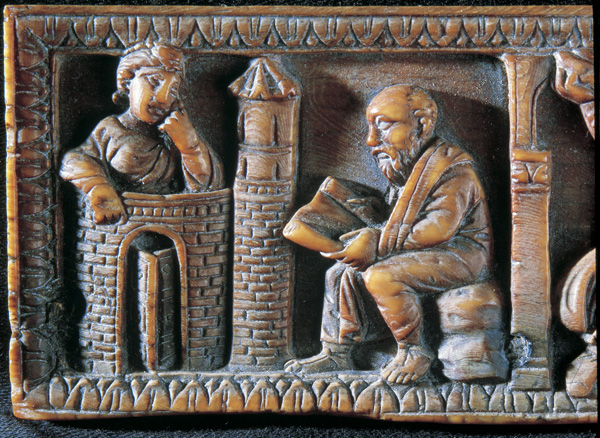Image Details

Erich Lessing
A dreamy Thecla (left) listens to the words of Paul who is preaching in the home of her neighbor in the town of Iconium (modern Konya, Turkey), in this fifth-century ivory tablet, possibly Roman in origin, now in the British Museum in London. A virgin engaged to be married, Thecla is entranced by Paul’s message on “sexual abstinence and the resurrection.” Despite the best efforts of her mother and fiancé to intervene, Thecla decides to abandon the domestic life that has been arranged for her and follow the apostle instead—even into prison, where he is thrown for “teaching deceitful and artful discourses” that divert women’s (and men’s) natural destiny.
As Cartlidge explains, a woman’s place, in the Greco-Roman world of the first century, was in the home, fulfilling the role of wife and mother. Many early church fathers shared this view and even distrusted the “old wives’ tales” (1 Timothy 4:7) that circulated among women—that is, oral stories like the Thecla tales (at least until they were published in written form late in the second century).
